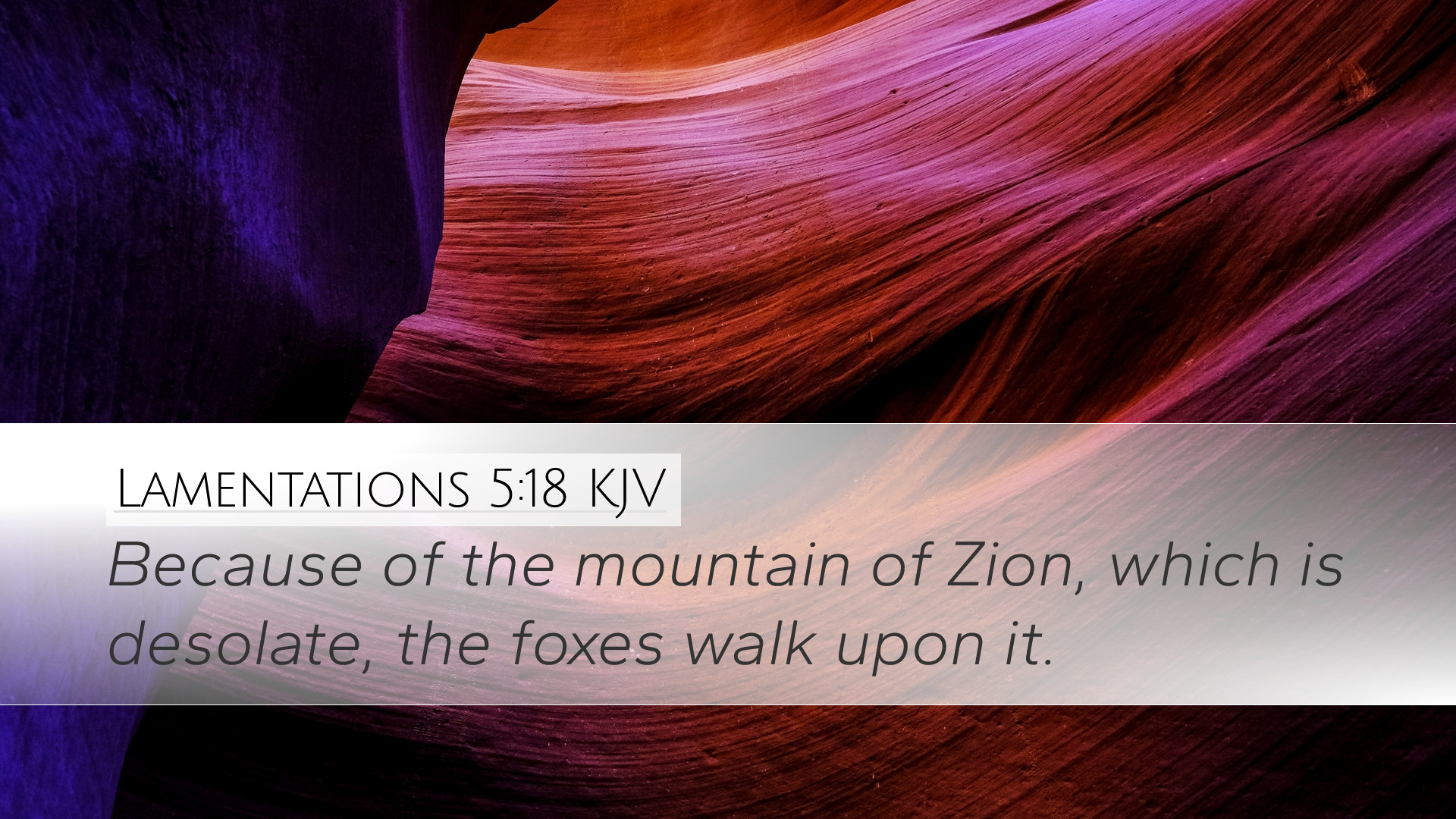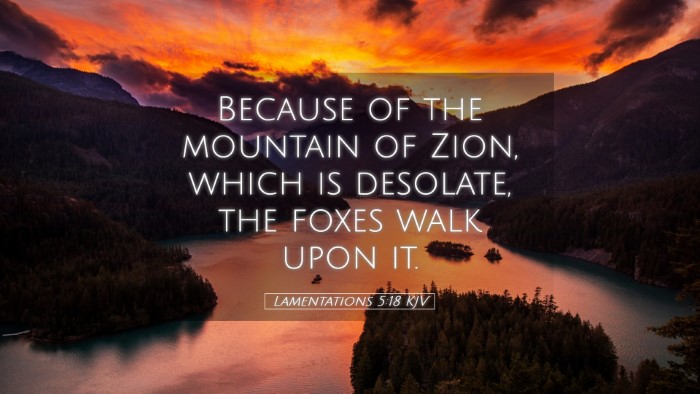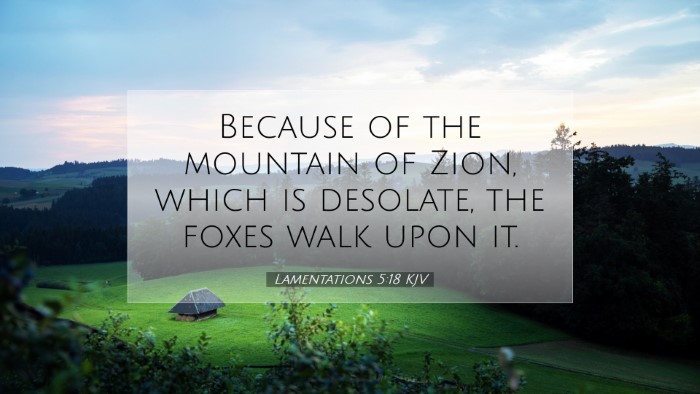Lamentations 5:18: A Commentary
Verse Text: "Because of the mountain of Zion, which is desolate, the foxes walk upon it."
Lamentations 5:18 encapsulates the profound sorrow and desolation experienced by the people of Israel following the destruction of Jerusalem. This verse serves as a poignant reflection on the state of Zion and the implications of its ruin.
Contextual Background
This chapter of Lamentations serves as a prayer for restoration. The poet, possibly Jeremiah, is lamenting the desolation of Jerusalem, which once stood as a beacon of hope and the dwelling place of God's presence. The city, now in ruins, symbolizes the spiritual and physical devastation of the Israelite people.
Theological Implications
The mention of "the mountain of Zion" is significant. In biblical terms, Zion represents not only a physical location but also a spiritual reality. It is often seen as the dwelling place of God and the site of His holy temple. The fact that it is now "desolate" signifies a profound spiritual abandonment and a break in the covenant relationship between God and His people.
Commentary Insights
Matthew Henry (1662-1714)
According to Matthew Henry, the desolation of Zion serves as a stark reminder of the consequences of sin and rebellion against God. Henry emphasizes that the "mountain of Zion" was once a glorious place, filled with the worship of Yahweh and His people. Its desolation is a direct result of the nation's unfaithfulness. He reflects on the imagery of foxes walking upon it, symbolizing the shame and degradation that has befallen the holy city.
Albert Barnes (1798-1870)
Albert Barnes notes that the mention of foxes alludes to the complete abandonment and vulnerability of Zion. Foxes, being symbols of cunning and destructiveness, roaming freely in a once-holy space, reveal the extent of the devastation. Barnes points out that the walking of foxes signifies a lack of reverence for the place that was once sacred. This serves as a visual reminder to the Israelites of what they have lost and the dire consequences of their actions.
Adam Clarke (1760-1832)
Adam Clarke provides additional insight into the cultural and historical context of the lamentation. He explains that the "mountain of Zion" is also a metaphor for the people of Israel who once had God as their protector and refuge. Clarke argues that the desolation of Zion reflects the broader themes of mourning, loss, and a yearning for restoration that permeates the entire book of Lamentations. Clarke emphasizes that this verse calls the people to remember their past glory and to lament for the spiritual condition that led to their current state.
Practical Applications
The implications of Lamentations 5:18 extend far beyond historical analysis. For pastors, students, and theologians, this verse serves as a powerful reminder of the importance of covenant faithfulness. The desolation of Zion illustrates the consequences of neglecting one’s relationship with God. Pastoral reflections can lead to discussions about personal and communal spiritual health, the importance of repentance, and the need for restoration in today's churches.
- Reflection on Sin: Lamentations 5:18 invites self-examination regarding how sin can lead to spiritual desolation.
- Call to Restoration: The lament ultimately brings about a longing for restoration, urging believers to seek God’s presence actively.
- Covenant Faithfulness: The verse emphasizes God's expectations of His people and the consequences of straying from their commitments.
Conclusion
Lamentations 5:18 resonates deeply in the hearts of those who understand the weight of spiritual desolation. By combining insights from noted commentators, we find a layered understanding of the text that not only speaks to its historical context but also offers contemporary relevance. The desolation of Zion as described in this verse serves as an urgent call to vigilance, faithfulness, and a striving for restoration in the lives of believers today.


